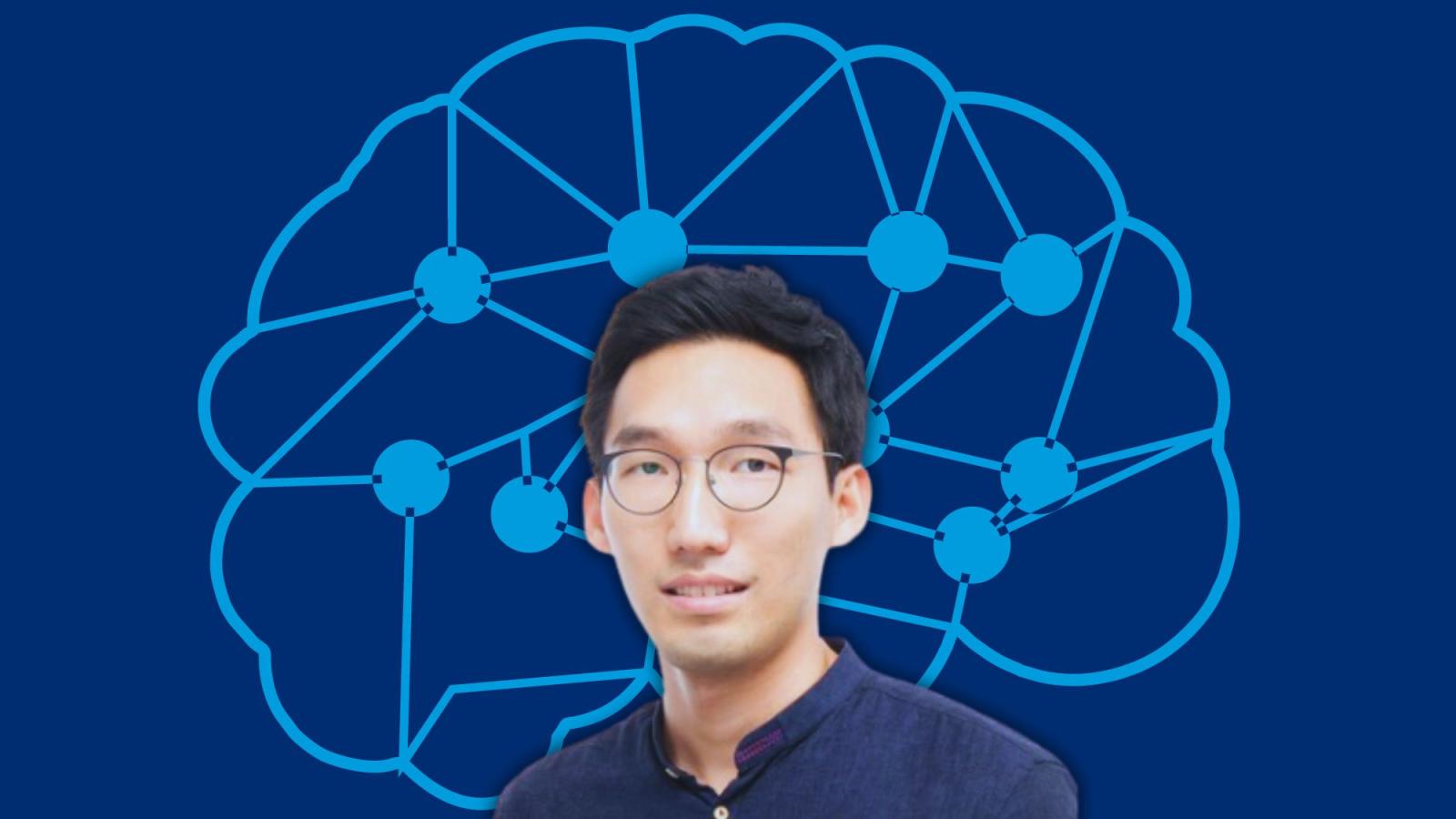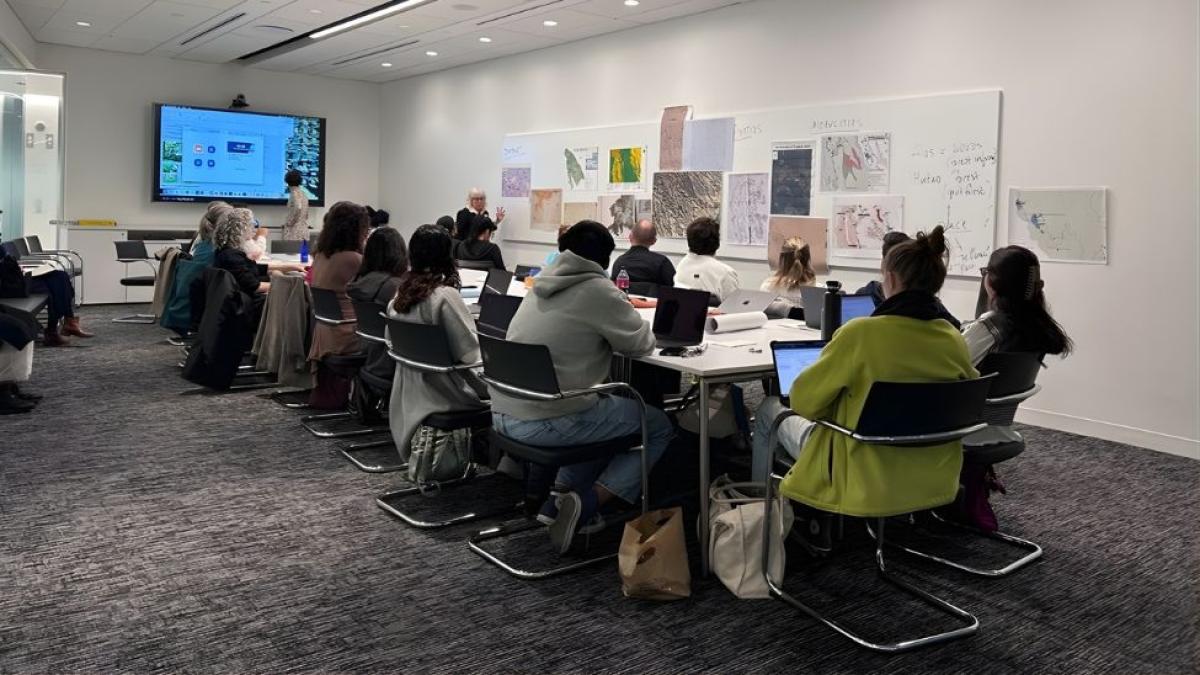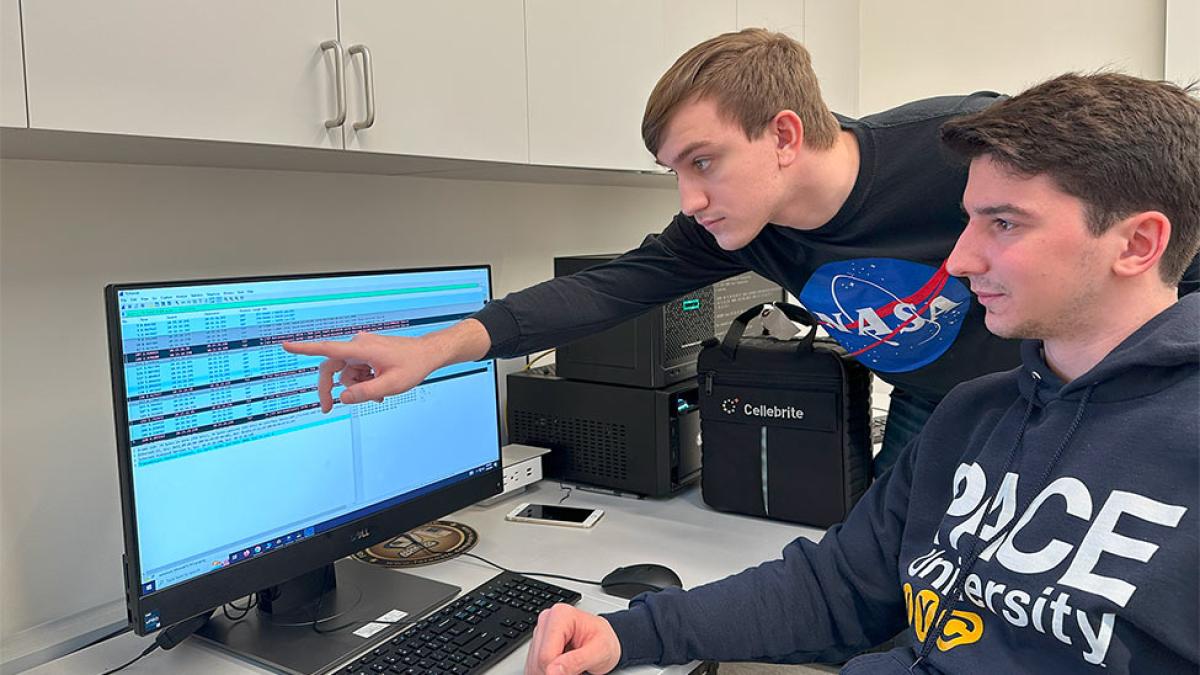Pace University sponsored a workshop with Dr. Nancy Peluso, funded by the Mellon grant: “Islands, Archipelagoes, and Cultural Ecologies.” The workshop, titled, “How to Tell Stories with Maps” grappled with how to use maps to tell stories about changes in the environment over time and its relationship to human migration.
Improving the Human Experience with Technology: A Multidisciplinary Approach

Youngsoo Shin, PhD, joined the Seidenberg School faculty this fall. As a new professor in the information technology department, Dr. Shin is applying his unique background to teaching students the value of a multidisciplinary approach to technology.
We asked Youngsoo a few questions so the Pace community can get to know him a little better.
What is your background in terms of research, interests, academic pursuits?
I have a diverse background, having a B.A. in psychology, a B.S. in interaction design, and a M.S. in cognitive science and engineering from Yonsei University, South Korea, and a Ph.D. in human behavior and design from Cornell University. My professional journey extends across various domains, including user experience (UX) and data science, with experience garnered from well-known companies such as AMOREPACIFIC, Samsung Electronics, Hyundai Motors, LG Electronics, and McKinsey & Company. I've taught at Yonsei University, Kookmin University, and FASTCAMPUS, a prominent provider of on/offline practical education services in South Korea.
I developed my expertise in the areas of cognitive science, human-computer interaction (HCI), and data science. My research centers around three interconnected themes: (1) research in design contexts for investigating the mechanism of human experience with computing systems; (2) practice-based research for developing a framework for hyper-personalized UX design with data-driven approaches; and (3) research aimed at creating human-centered artificial intelligence (AI) to enhance human experience and wellbeing (i.e., addressing sustainable energy issues, fostering users’ prosocial behaviors, and supporting human health and digital wellbeing). My overarching research objective is to address pressing challenges in people’s daily lives by investigating the compelling questions surrounding human interactions with computing systems and AI technologies.
What brought you to Pace University?
Part of what excited me about Pace University is the opportunity to contribute to Seidenberg’s cross-disciplinary opportunities for improving human experience in technologically mediated contexts. I believe that Seidenberg is the perfect place for me to explore my multi-faceted view of human experience and AI with the outstanding faculty. As a catalyst to explore creative and innovative problem-solving approaches, I also believe that I can teach, study, and apply innovative HCI and data science research to solve critical challenges in science, technology, engineering, and society.
How are you finding working at Seidenberg so far? What classes are you teaching and how are they going?
As a new assistant professor at Seidenberg, I'm finding the experience to be both challenging and rewarding. The department and university have been welcoming, and I'm excited to be part of the academic community here. This semester, I'm teaching two graduate-level courses:
Information Systems Principles (IS-617): In this course, we explore the fundamental principles of information systems from a end-user perspective. Students learn to analyze and design information systems with a strong focus on enhancing the user experience.
Programming User Interfaces (IS-629): This course is dedicated to programming user interfaces for software applications with a deep commitment to human-centered design. We go beyond traditional programming by emphasizing the significance of UX
Overall, the semester is off to a positive start, and I'm looking forward to helping my students develop their skills and knowledge in these important areas of computer science and information systems.
Who should take your classes, what should their interest areas be?
My primary teaching goal is to help students be a jack-of-all trades and master of some in a rapidly changing world. During my multidisciplinary journey at the intersection between cognitive science, data science, and UX design, I have witnessed that the versatility of perspectives and approaches has become more important than the focus of the domain- or field-oriented mindset. I invite students who want to learn the value of how to think as a generalist, instead of merely what to think as a specialist, in the field of HCI/UX.
Is there anything you’re planning to do in the coming months or years?
I plan to re-envision the future of HCI/UX and data science to create more highly human-centered AI technologies. At Seidenberg, I would like to test the generalizability and feasibility of my approach to human experience and AI by exploring new implementation areas and consolidating emerging approaches. Given that a wide range of AI technologies can be developed and tested to support users’ daily behavioral decision-making experiences, I expect that developing and testing additional design solutions will allow me to advance findings from previous studies iteratively. Specifically, I will identify new types of psychological and behavioral UX constructs and user profiling methods by focusing on the possibility of varying data collection sources and types in various AI technology usage contexts. Also, I will contribute to research about privacy-enhancing technologies, and transparency and fairness in digital privacy, as my previous research can be utilized as a foundation to better understand how to discuss this specific ethical and data-related issue raised by the development, deployment, and use of AI technologies.
Any final words?
To strengthen bridges across a range of fields regarding human experience and interactive systems requires a continuously wider and deeper learning process with a strong belief in growth.
There are no clear sets of rules or definite directions for investigating human experience with computing systems. Thus, the journey of becoming a transdisciplinary problem solver across relevant fields leads us off the well-worn path.
However, I hope to connect the dots of my previous professional and academic experiences to inspire Pace University students to bring innovations in the world. Thank you.


